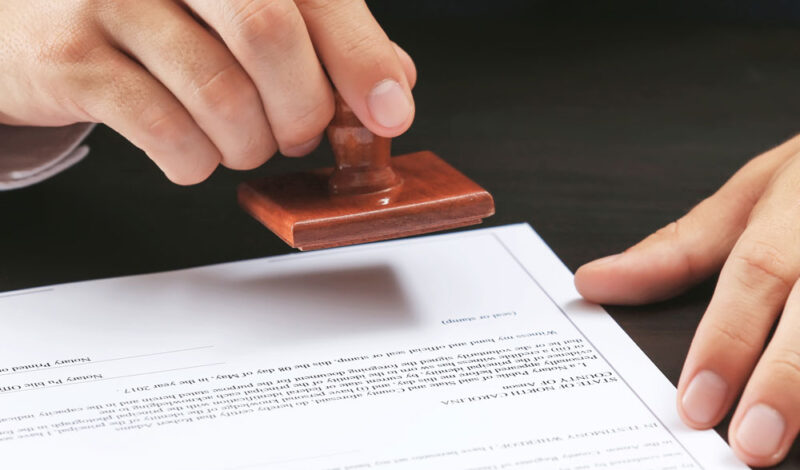
In today’s complex legal and financial landscape, a Power of Attorney (POA) is an essential document for anyone who wants to designate another person to make decisions on their behalf. However, creating a Power of Attorney alone isn’t always enough; ensuring it is notarized can be crucial to its effectiveness and legality. In this article, we’ll explore what a Power of Attorney is, why notarization is often required, and how it can protect your interests.
What Is a Power of Attorney?
A Power of Attorney is a legal document that grants another person (known as the “agent” or “attorney-in-fact”) the authority to act on behalf of the person creating the POA (known as the “principal”). The scope of authority can vary, allowing the agent to make decisions ranging from financial and business matters to healthcare choices, depending on the type of Power of Attorney created.
There are several types of POAs, each tailored for specific situations:
- General Power of Attorney: Grants broad powers over financial and legal matters.
- Limited (or Special) Power of Attorney: Grants specific, limited powers for certain tasks, such as selling a property.
- Durable Power of Attorney: Remains effective even if the principal becomes incapacitated.
- Medical Power of Attorney: Grants authority to make healthcare decisions on behalf of the principal.
While a POA can be a powerful tool for estate planning, medical directives, or financial management, notarizing the document adds a critical layer of security and credibility.
Why Notarization Is Important for a Power of Attorney
- Enhances Legal Validity and AcceptanceIn many jurisdictions, notarization is required for a POA to be legally binding, especially if the POA grants significant financial powers or involves healthcare decisions. Notarization assures that the document meets legal standards and that the principal has signed it voluntarily and with full understanding. Courts, banks, healthcare providers, and other institutions are far more likely to accept a notarized Power of Attorney without question.
- Protects Against Fraud and ForgeryA notarized Power of Attorney minimizes the risk of fraud, as it requires the principal to appear in person before a notary public, confirm their identity, and attest to their understanding of the document. This process makes it far harder for someone to create a fraudulent POA or coerce someone into signing a document they don’t fully understand.
- Ensures Clarity in Times of CrisisNotarizing a POA can prevent delays and disputes during times of crisis. If the principal becomes incapacitated, a notarized POA provides clear, legally recognized authority for the agent to make decisions on their behalf. This clarity can help family members, caregivers, and institutions act quickly and effectively, without facing challenges to the POA’s legitimacy.
- Helps Comply with Institutional RequirementsMany banks, healthcare providers, and government agencies require notarized POAs before granting access to accounts, authorizing transactions, or making healthcare decisions. A notarized POA is less likely to be challenged, allowing the agent to carry out the principal’s wishes with fewer obstacles.
How the Notarization Process Works for a Power of Attorney
- The process for notarizing a Power of Attorney is straightforward but requires careful attention to detail:
- Gather Necessary Identification: The principal must bring valid government-issued identification to verify their identity to the notary public.
- Appear in Person: Notarization requires the principal to appear in person before the notary. This step is essential to prevent coercion and verify the principal’s understanding and willingness.
- Sign in the Presence of the Notary: The principal must sign the POA in front of the notary, who will witness the signature and apply an official notarial seal or stamp to the document.
- Receive the Notarized Document: Once notarized, the Power of Attorney is legally binding and can be presented to institutions or individuals who may need to verify the agent’s authority.
The Benefits of Using a Professional Notary Service for Power of Attorney
While some individuals may attempt to notarize a POA using an acquaintance or basic online service, working with a professional notary has several advantages:
-
- Accuracy and Compliance: Professional notaries ensure that the document meets all local legal requirements and includes the correct information to be accepted by institutions.
- Convenience and Efficiency: Many professional notaries offer flexible options, including mobile or online notarization services, which can be convenient for elderly or incapacitated individuals.
- Peace of Mind: A professional notary provides a thorough, legally sound notarization process, ensuring that all parties involved have peace of mind regarding the document’s legitimacy.


